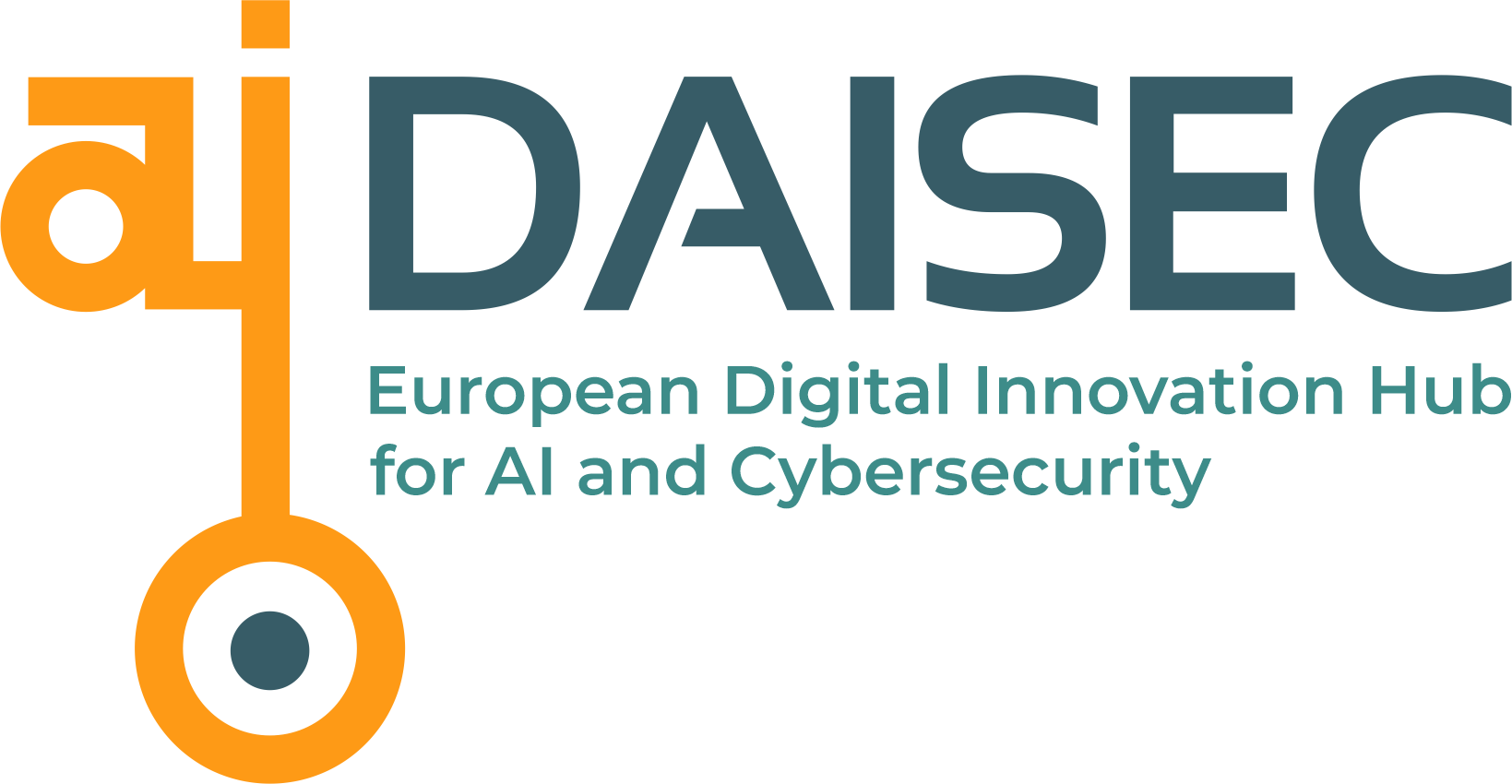Ring design with AI at the Stichnoth goldsmiths. The project was implemented by DAISEC employees from the core partners L3S, HPI and Mittelstand-Digital Zentrum Hannover. ©Photo: Lukas Fischer, DAISEC
Digital Innovation Hub
Smart Tools for the Workshop
Artificial intelligence (AI) in the skilled trades: many companies are unaware of the potential applications. After all, the skilled trades are characterised by manual work, direct customer contact, and bespoke solutions. However, intelligent technologies have enormous potential in the diversity and precision of manual work. AI can help to make processes more efficient, improve quality, and open up new ways of communicating with customers and developing products.
Many small and medium-sized enterprises (SMEs) still struggle to navigate the digital landscape, and the relevance of technologies such as cloud software, image generators, chatbots and cybersecurity for their own sector remains unclear. This is precisely where DAISEC, the European Digital Innovation Hub for AI and cybersecurity, comes in. As one of 17 EU-funded Digital Innovation Hubs in Germany, DAISEC supports companies on their digitalisation journey in a practical, technology-neutral and free-of-charge manner.
Customised support instead of technical overload
DAISEC is the regional partner for companies looking to advance their digitalisation, even if they don’t have an IT department or specialised staff. The focus is on skilled trades, manufacturing, and mobility. The hub brings together an interdisciplinary team of computer scientists, engineers and other specialists. The L3S Research Centre leads the DAISEC consortium, which comprises ten core partners and numerous associated partners who together offer a comprehensive, modern range of services and consultancy.
Dr. Daniel Kudenko, DAISEC’s Managing Director, sees particular potential for development in the skilled trades sector: ‘Skilled trades businesses can benefit greatly from a better understanding of, and more expertise in, AI and IT security. Our goal is to enable entrepreneurs to achieve this at their current level of need.’ The Heinz Piest Institute for Craft Technology at Leibniz University Hannover (HPI), one of DAISEC’s core partners, is responsible for transferring technology to skilled trades businesses.
DAISEC’s services range from training courses and digital exchange formats to support in the use of new technologies. DAISEC experts determine a company’s digital maturity level, analysing the extent to which the prerequisites for using AI or cyber security solutions are in place. In addition to a technology check, this also includes the question of whether data structures, personnel resources and processes are suitable for AI tools.
Many companies have identified a variety of potential applications for the new tools, ranging from customer contact and office organisation to production and marketing. If all the requirements are met and the use of the new technology is realistic, DAISEC can support companies throughout the process, for example as part of an innovation project.
From theory to the workbench: practical examples from the skilled trades sector
Numerous DAISEC projects demonstrate that the implementation of AI and cybersecurity measures in skilled trades is not just a vision for the future. AI particularly enhances visual design and communication with customers. Efficiency gains can be achieved without displacing the creative core of craftsmanship.
AI-generated design drafts
One example is the collaboration with DEIN FREUND, a joinery company. To speed up and clarify the furniture design process, the company worked with DAISEC to integrate the Stable Diffusion AI model into the customer consultation process. Based on short text descriptions, known as ‘prompts’, the AI generates photorealistic image suggestions. This means that individual requirements can be discussed directly on site and immediately translated into design ideas that can be adapted iteratively. This saves time, facilitates communication, and accelerates the customer’s decision-making process.
DAISEC employees also advised the joinery on implementing a chatbot on its website that utilises image generation AI. Customers can now generate and visualise initial design ideas themselves using short text prompts. They can do this around the clock, without involving specialised staff. This innovative online service provides customers with guidance at an early stage while conserving the joinery’s resources. Combining AI-supported on-site consultation with an interactive web tool creates a modern, efficient, and customer-friendly overall experience.
AI is also used in a similar way at Stichnoth Goldsmiths, where Stable Diffusion simplifies jewellery design. During customer consultations, goldsmith advisors can visualise and develop individual ideas in real time using prompts, for example by adapting elements or materials. Existing product photos can even be integrated into the process to make modifications or develop variations. Compared to traditional CAD planning, using AI saves a considerable amount of time and makes the design process more efficient, dialogue-oriented and customer-friendly.
Automation, maintenance and documentation
AI is demonstrating its potential in many sectors, including design. Technically oriented trades are also increasingly benefiting from intelligent systems, such as those used in the refrigeration industry. DAISEC has developed automated maintenance and documentation solutions in collaboration with specialist companies. Using sensor data and AI-supported analyses, potential faults can be detected early and preventative measures initiated. This form of predictive maintenance reduces downtime, cuts costs, and extends the service life of systems.
Another example is the automated procurement of data sheets for revision documents at the end of a project. Rather than compiling documents manually, an AI takes over this task, ensuring that all relevant information is correct, complete and error-free. This saves a considerable amount of time, particularly for extensive projects, and significantly reduces the workload of the specialists.
AI can also be helpful in administration. A project with the Braunschweig-Lüneburg-Stade, Hanover and Hildesheim-South Lower Saxony Chambers of Crafts demonstrates this. A text-based chatbot was developed together that simplifies the digital registration of apprentices for the apprenticeship register by answering frequently asked questions about registration.
Cybersecurity is a basic requirement
However, with increasing digitalisation, vulnerability to cyber attacks is also growing. Many companies underestimate the risks posed by inadequate IT security. Hacker attacks, phishing attempts and malware can paralyse systems and, in the worst-case scenario, compromise confidential customer data and damage trust in the company. ‘Cybersecurity is not just an IT issue. It affects every company that uses digital tools,” says Kudenko. “And in the skilled trades, this use is becoming increasingly widespread.”
This is why DAISEC is focusing on closely interlinking the introduction of AI and IT security consulting. Alongside awareness training, webinars and the online cyber security check, the hub also provides targeted support for specific implementation projects.
One example is our collaboration with SR Painting Company. The medium-sized craft business wanted to improve access security at its offices as part of a planned cyber insurance policy. DAISEC experts first conducted an inventory and evaluated various two-factor authentication (2FA) procedures with the company. Following DAISEC’s recommendation, the company then adopted FIDO2 hardware tokens — small physical security keys that facilitate passwordless and phishing-resistant logins. After a few selected employees had successfully tested the suitability of the tokens for everyday use, the company decided to implement them company-wide. This project demonstrates how modern security standards can be seamlessly integrated into daily operations with the right support.
Secure smart home technology
However, securing networked systems is important not only for in-house systems, but also for the growing smart home sector, in which many businesses are now active. Intelligent technology in households or buildings creates new points of attack, such as unprotected interfaces or a lack of access controls. A holistic security strategy is therefore becoming a decisive success factor.
Data protection is also more important than ever. Particularly when using chatbots or AI applications that work with personal data, the utmost care is required. DAISEC helps companies implement solutions that are functional, robust, and compliant with data protection regulations — providing local, comprehensive, and customised support for each IT environment.
From the idea to implementation
Whether the focus is on digital product configuration, predictive maintenance systems or IT infrastructure protection, DAISEC supports small and medium-sized enterprises throughout their entire digital transformation process. Thanks to EU co-financing, all programmes are free of charge for SMEs.
Contact

Dr. Daniel Kudenko
Daniel Kudenko is a research group leader at L3S. As Managing Director of DAISEC, he is committed to the transfer of knowledge to small and medium-sized enterprises and the public sector.


